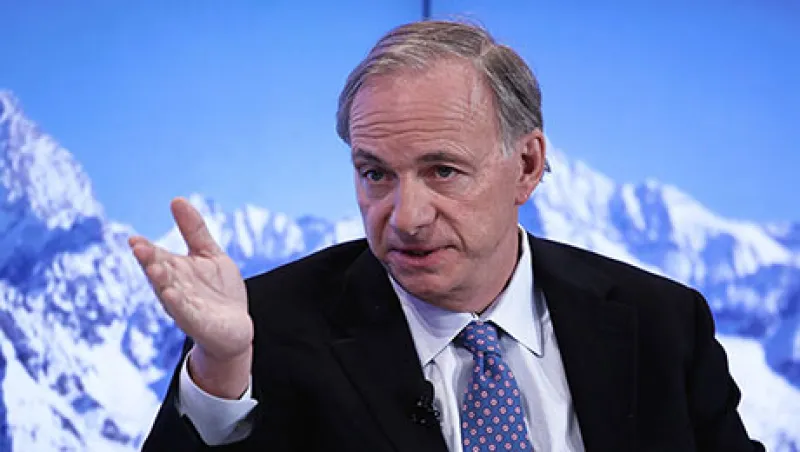
Raymond 'Ray' Dalio, billionaire and founder of Bridgewater Associates LP, gestures as he speaks during a panel session at the World Economic Forum (WEF) in Davos, Switzerland, on Wednesday, Jan. 18, 2017. World leaders, influential executives, bankers and policy makers attend the 47th annual meeting of the World Economic Forum in Davos from Jan. 17 - 20. Photographer: Jason Alden/Bloomberg
Jason Alden/Bloomberg


